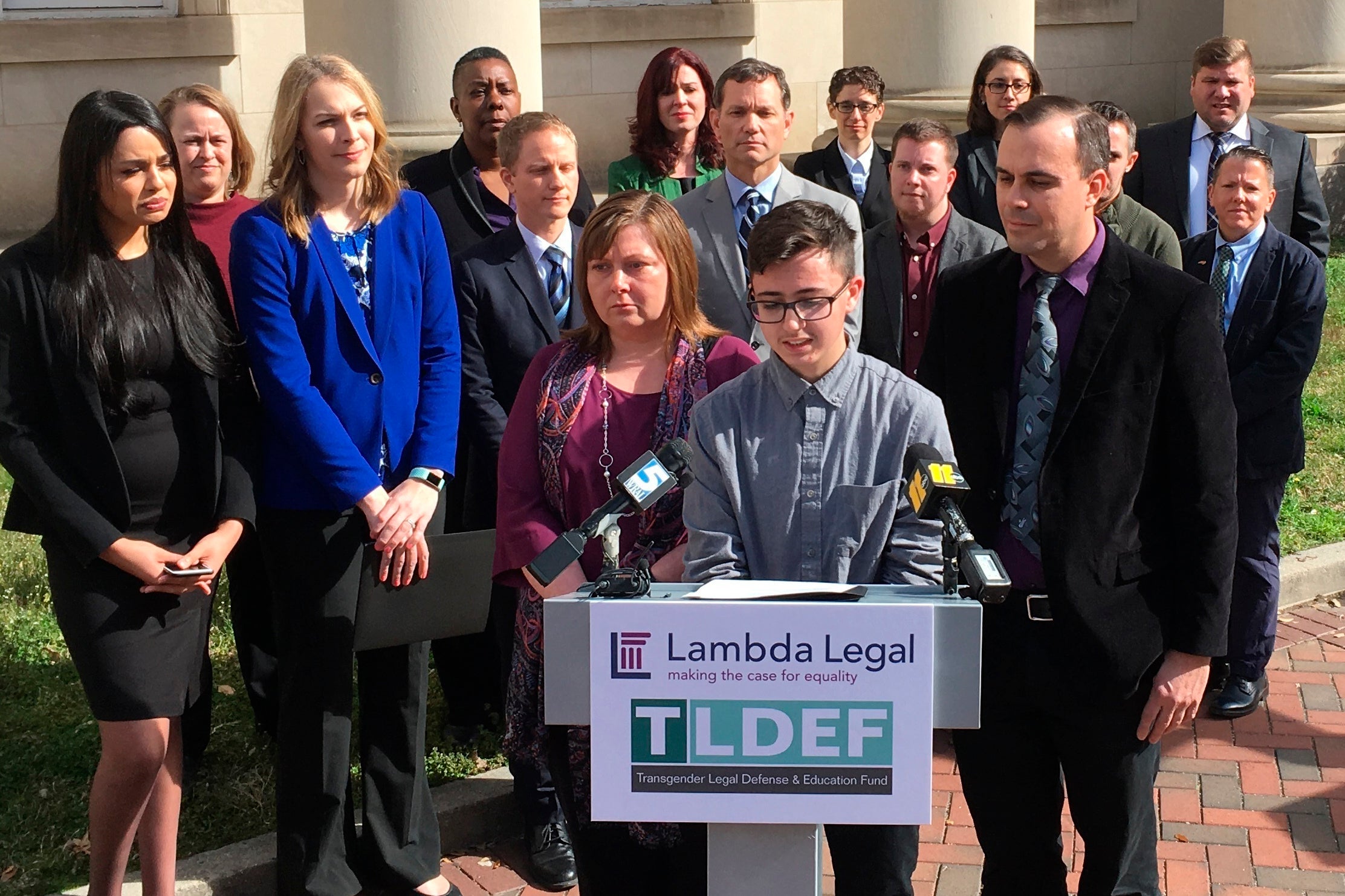Appeals court takes up transgender health coverage case likely headed to Supreme Court
A federal appeals court is considering cases out of North Carolina and West Virginia that could have significant implications on whether individual states are required to cover health care for transgender people with government-sponsored insurance

Your support helps us to tell the story
From reproductive rights to climate change to Big Tech, The Independent is on the ground when the story is developing. Whether it's investigating the financials of Elon Musk's pro-Trump PAC or producing our latest documentary, 'The A Word', which shines a light on the American women fighting for reproductive rights, we know how important it is to parse out the facts from the messaging.
At such a critical moment in US history, we need reporters on the ground. Your donation allows us to keep sending journalists to speak to both sides of the story.
The Independent is trusted by Americans across the entire political spectrum. And unlike many other quality news outlets, we choose not to lock Americans out of our reporting and analysis with paywalls. We believe quality journalism should be available to everyone, paid for by those who can afford it.
Your support makes all the difference.A federal appeals court is considering cases out of North Carolina and West Virginia that could have significant implications on whether individual states are required to cover health care for transgender people with government-sponsored insurance.
The Richmond-based 4th U.S. Circuit Court of Appeals heard oral arguments in cases Thursday involving the coverage of gender-affirming care by North Carolina’s state employee health plan and the coverage of gender-affirming surgery by West Virginia Medicaid.
During the proceedings, at least two judges said it’s likely the case will eventually reach the U.S. Supreme Court. Both states appealed separate lower court rulings that found the denial of gender-affirming care to be discriminatory and unconstitutional. Two panels of three Fourth Circuit judges heard arguments in both cases earlier this year before deciding to intertwine the two cases and see them presented before the full court of 15.
Tara Borelli, senior attorney at Lambda Legal — the organization representing transgender people denied services in both states — said excluding the coverage is a clear example of discrimination outlawed by the 14th Amendment.
“The exclusion here is actually quite targeted, it's quite specific," Borelli said in court, arguing that a faithful interpretation of the U.S. Constitution and the equal protection clause ensures transgender people coverage.
“One of the most important things that a court can do is to uphold those values to protect minority rights who are not able to protect themselves against majoritarian processes,” she said.
Attorneys for the state of North Carolina said the state-sponsored plan is not required to cover gender-affirming hormone therapy or surgery because being transgender is not an illness. Attorney John Knepper claimed only a subset of transgender people suffer from gender dysphoria, a diagnosis of distress over gender identity that doesn’t match a person’s assigned sex.
Knepper said North Carolina's insurance plan does not discriminate because it does not allow people to use state health insurance to “detransition,” either.
Before offering pharmaceutical or surgical intervention, medical guidelines call for thorough psychological assessments to confirm gender dysphoria before starting any treatment.
In updated treatment guidelines issued last year, the World Professional Association for Transgender Health said evidence of later regret is scant, but that patients should be told about the possibility during psychological counseling.
West Virginia attorneys said the U.S. Centers for Medicare & Medicaid Services has declined to issue a national coverage decision on covering gender-affirming surgery.
Caleb David, attorney for the state defendants, said West Virginia's is not a case of discrimination, either, but of a state trying to best utilize limited resources. West Virginia has a $128 million deficit in Medicaid for the next year, projected to expand to $256 million in 2025.
“West Virginia is entitled to deference where they're going to take their limited resources," he said. “They believe that they need to provide more resources towards heart disease, diabetes, drug addiction, cancer, which are all rampant in the West Virginia population.”
Unlike North Carolina, the state has covered hormone therapy and other pharmaceutical treatments for transgender people since 2017. “That came from a place of caring and compassion,” he said.
In June 2022, a North Carolina trial court demanded the state plan pay for “medically necessary services,” including hormone therapy and some surgeries, for transgender employees and their children. The judge had ruled in favor of the employees and their dependents, who said in a 2019 lawsuit that they were denied coverage for gender-affirming care under the plan.
The North Carolina state insurance plan provides medical coverage for more than 750,000 teachers, state employees, retirees, lawmakers and their dependents. While it provides counseling for gender dysphoria and other diagnosed mental health conditions, it does not cover treatment “in connection with sex changes or modifications and related care.”
In August 2022, a federal judge ruled that West Virginia’s Medicaid program must provide coverage for gender-affirming care for transgender residents.
U.S. District Judge Chuck Chambers in Huntington said the Medicaid exclusion discriminated on the basis of sex and transgender status and violated the equal protection clause of the 14th Amendment, the Affordable Care Act and the Medicaid Act.
Chambers certified the lawsuit as a class action, covering all transgender West Virginians who participate in Medicaid.
An original lawsuit filed in 2020 also named state employee health plans. A settlement with The Health Plan of West Virginia Inc. in 2022 led to the removal of the exclusion on gender-affirming care in that company’s Public Employees Insurance Agency plans.